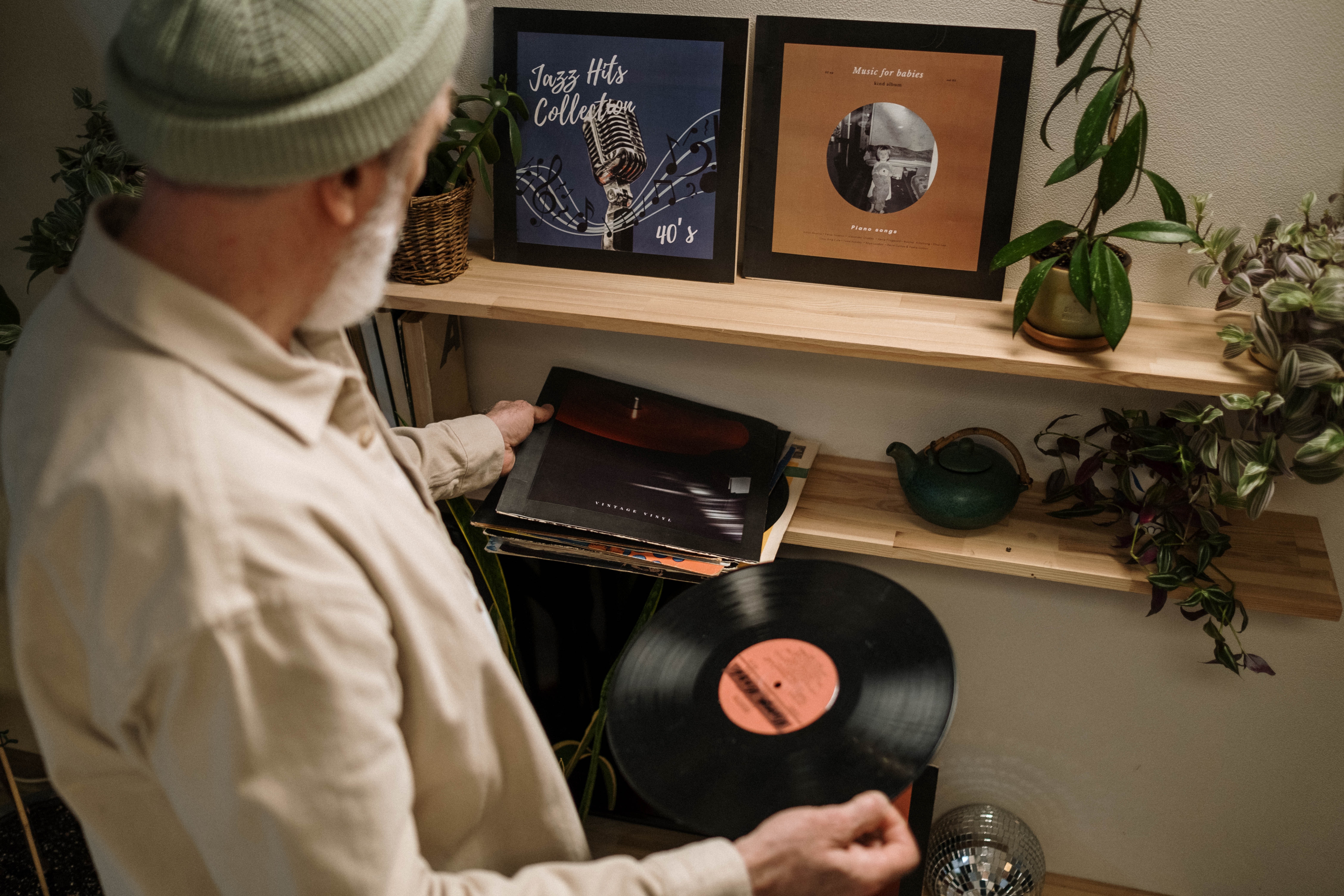Music And Memory: The Soundtrack To Our Narrative
It’s the reason we sing the alphabet as children, and learn the parts of our body through simple nursery rhymes – we remember music much easier than we do text or simply being told.
It’s also the reason we can be mentally (and emotionally) catapulted to a time long past within seconds of hearing an old song; a sensation that starts in our ears, but quickly envelopes all of our senses – allowing us to temporarily, albeit intensely, revisit the past.
But how does this happen, and why? And how can we use this to our advantage? Let’s explore.

How Does Our Music Memory Work?
Our ‘musical memory’ and autobiographical memory are closely linked; helping us forge and maintain our sense of self-identity and work together to aid us in memory recall and emotional regulation. Despite this, they are actually separate processes and are now known to take place in different parts of the brain.
When we create and recall typical memories, most of the brain activity takes place in various areas of the frontal and temporal lobes, before the memory ‘forms’ in the hippocampus. A study conducted in 2016 demonstrated how our musical memory operates in different ways to other forms of memory recall.
By tracing brain activity when stimulated by a variety of well-known and recently discovered music compositions, researchers were able to identify an area of the brain (the musical memory area; or MMA) that handles memory associated with music, located in separately from the hippocampus and the temporal lobe that we know are fundamental to long-term memory function.
Music As A Therapeutic Tool For Cognitive Disorders
The difference between the processes helps explain why people who suffer from cognitive disorders, such as dementia (which greatly affects the hippocampus), proceed to sing and dance to music they were once familiar with, after being considered unable to speak.
This was observed by Dan Cohen, who in 2015 formulated a type of therapeutic activity that engaged people afflicted with Alzheimers’s – some who were thought to be mute – with music from their past.
It can also help people who’ve suffered strokes or brain damage begin to talk again, after trauma to the left side of the brain limits their capacity to speak, as demonstrated by researchers from the Harvard-affiliated Beth Israel Deaconess Medical Center.
This is because the ability to sing originates in the right side of the brain, so people can learn to speak their thoughts by singing them first and gradually dropping the melody. Incredible, right?

Why Do Certain Songs Remind Us Of The Past So Strongly?
As we’ve explored in previous blog posts, our memories – and by extension, nostalgia – serve multiple purposes. They allow us to make sense of the present by reflecting on the past, and make predictions for the future by saving and recalling the countless experiences we have during our lives.
They help us build our self-identity. Life changing events, experiences, tastes and preferences all become defining aspects of our existence, and as such play a huge role in how we navigate and interact with the world around us. Nostalgia also helps us regulate our emotions, and counteract feelings of sadness and loneliness (for the most part).
But how does music fit into all this? Well, music and memory individually serve similar purposes to us. Researchers Lamont and Loveday (2020) identified four common themes connecting both music and autobiographical memories: personal identity (i.e. sense of self), interpersonal relationships and attachment; emotional responses; and repeated exposure.

As one of our five senses, hearing is one of the ways we physically interact with the world and ‘build’ memories; but music takes it a step further than most stimuli. Listening to music activates the entire limbic system of our brains; an area which is heavily involved in the processing of emotions and in controlling long-term memory.
So, not only are we using our sense of hearing to document a moment in our lives, but that ‘document’ is already entwined with a complex emotional response. We then recall the memory using more parts of our brain (MMA) than usual, which produces a more intense response compared to that of other stimuli (e.g. sight).
Now we’ve got the science out of the way, let’s look at how you can use music to help you record your own stories.
Using Music To Help Record Your Stories
So, you’ve got yourself primed and ready to record in your preferred way; you’re sitting comfortably with a bit of time in front of you to really get into it. You’ve covered some fairly recent experiences, but when you try to go back a bit further to your youth, your mind goes a bit blank. What do you do?
It’s really quite simple, and one of our favourite ways to get the memories flowing at Iternal. You guessed it – listening to some good old tunes!
If you’re lucky, you’re subscribed to a streaming service, or have a big collection of all your favourite songs throughout the years. Failing that, a quick youtube search for ‘[insert decade here] biggest hits’ is sure to unload a whole trove of old gems on your ears.

However you’ve acquired your music, take some time to listen through your selection. In note form, or dictating to a microphone, jot down the name of the song and make reference to any memories or stories that come back to you.
When you feel like you’ve jotted down enough, go back to the song where the memories felt strongest and dig a little deeper – how can you expand on your initial recollections? Do any more stories emerge from revisiting this area of your life? You’ll be surprised what else comes back to you, so don’t hold back from going on a tangent; as long as you make notes, you can always come back and develop your thoughts!
Following this process, you should now have a whole bunch of old memories come back to you. Give them a deserved place in the story of your life and save them to your Iternal timeline today, and be sure to check out our blog space every week for more content around your stories, memories and experiences.




